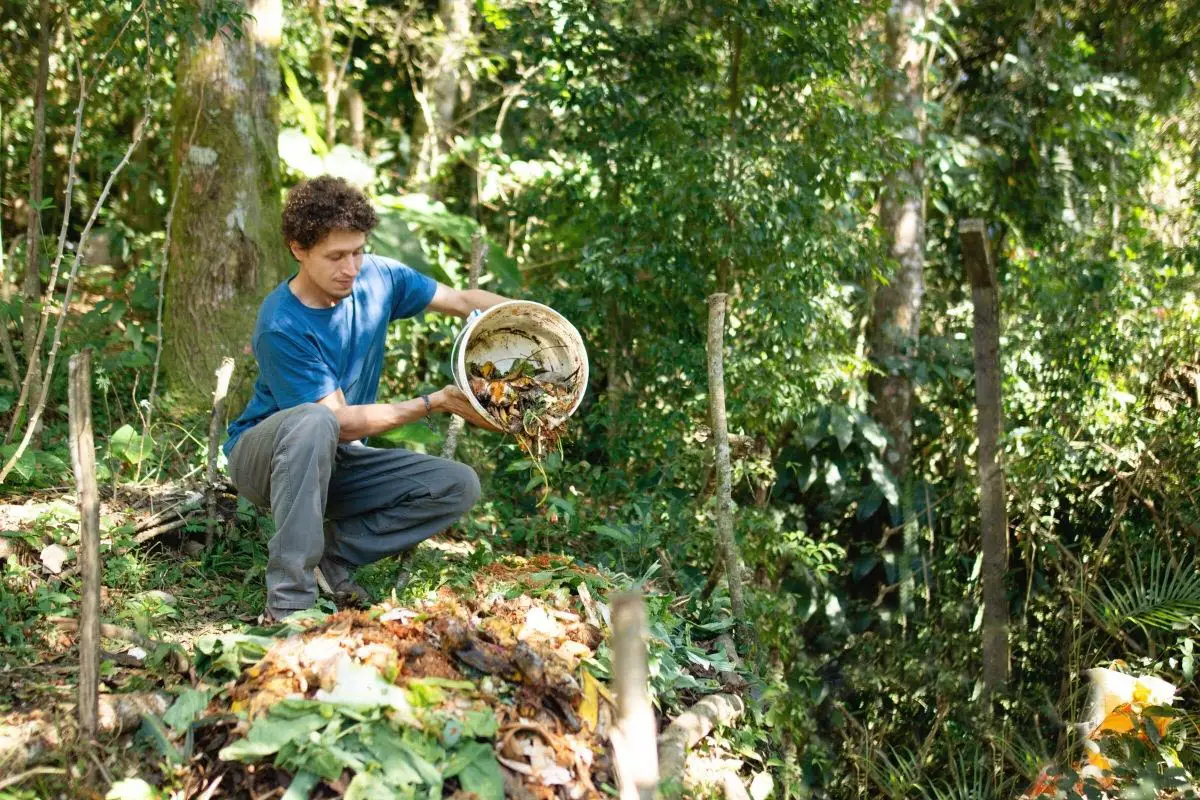Composting 101: Can You Plant Directly Into Compost?
If you’re new to the composting world, then you’ve probably wondered whether or not you can plant directly into your compost. It’s all too easy to get carried away with your new love for composting, but is using too much of it a bad idea?
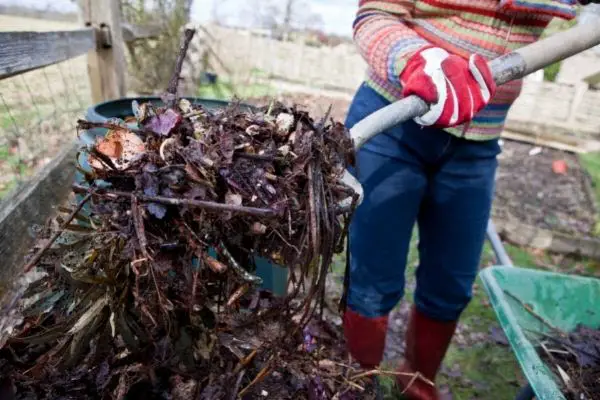
The short answer is yes – in most cases, too much of it may do more damage than good! In fact, I killed a few plants doing this. Balance is the key here. Using some of your compost is great, but some caution is required!
In most cases, using pure compost (without mixing up with soil) is probably not going to be the best way to help your plants grow. Below, we’ll explain where and when you should be using compost and how to get the most out of your “black gold.”
How Can Compost Help Your Garden?
Using compost in your garden is an amazing way to enrich the soil, feed nutrients to your plants, and generally improve the health of your garden. If you’re making your own compost, you’ll also be producing less food waste, which is great for the environment.
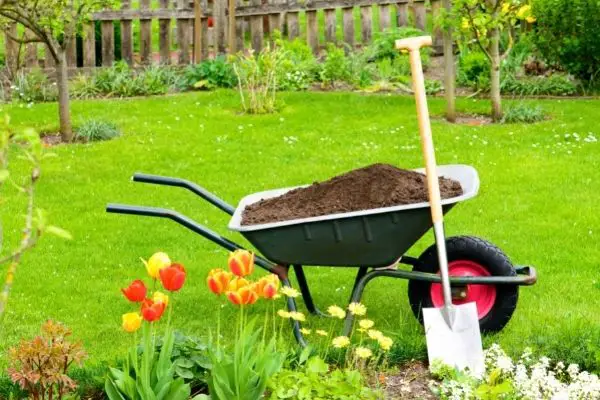
Compost is particularly great for planting into and is packed with goodness that the plants can take in. However, it’s important to know that soil also contains important nutrients that aren’t found in compost. For the best growing conditions, we typically want to be using a combination of the two.
Is It Possible To Have Too Much Compost?
Even though planting directly into your compost is tempting, you usually won’t be creating the best environment for your plants to thrive. It’s more important to craft fertile soil if you’re growing plants, which is achieved when you mix compost together with normal soil.
In fact, lots of compost can actually lead to poor plant health. Compost does not hold water well by itself, but when mixed with topsoil, the combination is extremely effective at retaining water around the plant’s roots. The poor water retention of compost is one of the biggest reasons not to use it alone.
Additionally, compost is not very stable by itself. This is particularly true if your compost is slightly dry and crumbly. As a result, plants will struggle to stand up in the compost, and you might find yourself re-bedding your plants after a strong wind.
So, Can You Plant Straight Into Compost?
Where possible, we always recommend that you DO NOT plant straight into compost. Unfortunately, pure compost doesn’t have all the nutrients that plants need to thrive. The fact that compost struggles to retain water without being mixed with soil proves this point further.
One of the best ways to use compost for planting is to mix just an inch or two with your existing topsoil. This will keep your soil healthy whilst providing the strength and retention of water that compost lacks.
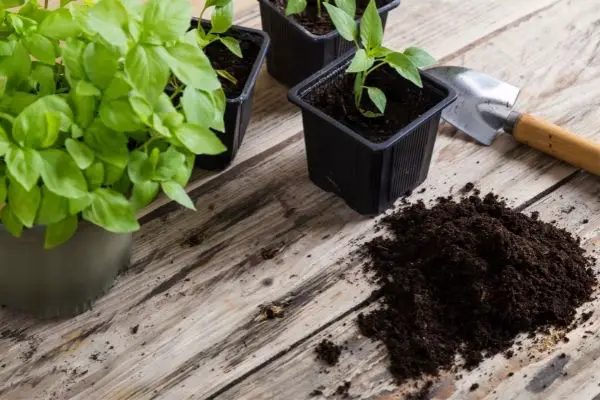
It’s always fun to experiment with different ratios of soil to compost and see what works best. Everywhere in the world has different kinds of soil – in some places, it will be damp, and in others, it will be sandy soil. It’s all about finding the right compost balance to make your soil as good as possible.
Ways To Use Compost In The Garden
There are loads of great ways to use compost. The organic matter broken down into compost gives the substance some unique benefits that you really can’t get with anything else. All budding gardeners should definitely be making use of compost in some way or another.
The best part is that compost is super easy to make at home. You can make an amazing garden supplement from food scraps, grass clippings, and other organic material by starting your own compost bin.
Mix with Soil
We’ve already talked about this above, but adding compost to soil is a fantastic way to improve the health of your garden. The combination of compost and soil gives plants all the nutrients they need to thrive.
This is especially true if you’re growing vegetables. Vegetables love a nutrient-rich environment, and you’ll quickly improve the quality of your vegetable garden by using compost.
Spread as Mulch
Mulch describes any material you place around plants to keep the soil underneath moist and shade out any pesky weeds. Many people use things like dead leaves and wood chips as mulch, but compost is actually a good alternative.
If you’ve got a big compost pile and don’t know what to do with it, spreading some as mulch is always a great idea. We recommend adding a thick, 3-4 inch layer of compost mulch around your plants. As time passes, this mulch will also soak down into the soil, enriching it even further.
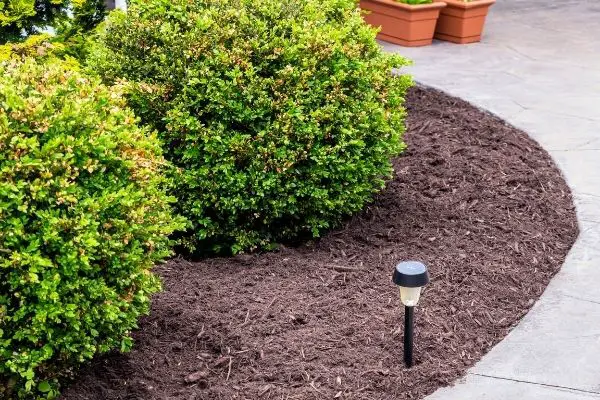
Make “Compost Tea”
Compost tea is beneficial to have around your garden and will act as a revitalizing beverage for your plants. Compost tea is made through a process of fermentation – all you really have to do is soak some compost in a bucket of water and hope for the best!
Much More!
These are just a few of the many uses for compost in the garden. It’s really quite remarkable just how useful this substance can be. Check out our full article about using compost and soil to find out more about how both materials can work together in the garden.
Frequently Asked Questions
Can you grow plants with just compost?
Planting in compost directly is generally not recommended. Even though compost is extremely rich in nutrients, it does have all the essential elements that plants need. The rest of these elements come from regular soil, which is why it’s always best to use a combination of the two.
Can you plant directly into Bokashi compost?
If you bury fermented Bokashi scraps, planting directly into pure Bokashi content is even riskier due to the acidic nature of the fermentation process. I definitely recommend you mix it up with soil before planting.
Can lots of compost hurt plants?
An excessive amount of compost can cause a couple of problems that can be less than ideal for gardeners. Firstly, compost does not hold water very well when it’s by itself – it needs to be mixed with soil before it can effectively retain water and provide it to the plants.
Moreover, it is not a particularly stable substance, especially if it’s dry. This means plants often struggle to stay in place in compost and can be quickly uprooted in strong winds.
Does a compost pile turn into soil?
Compost piles don’t turn into regular soil, but they do eventually break down into a “soil-like” material. You can combine this material with normal soil for use across your garden beds and in a variety of different ways.

